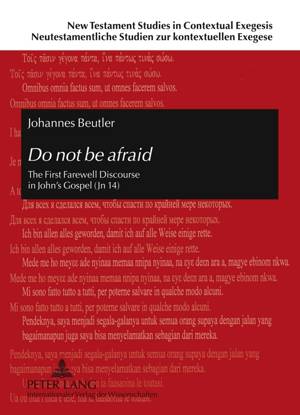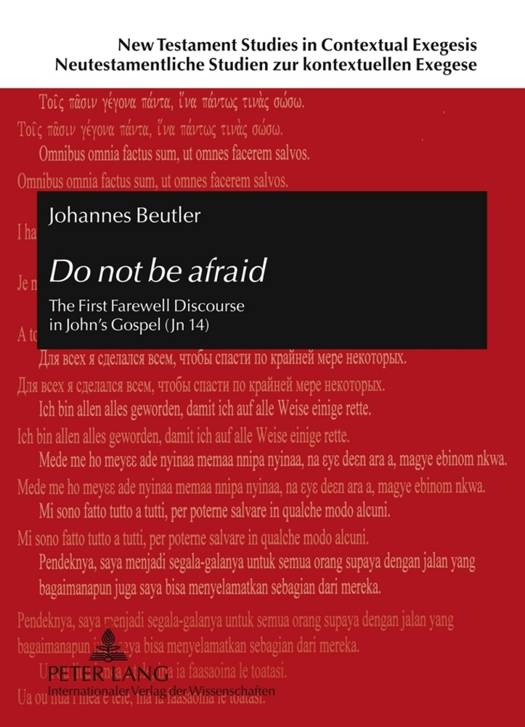
- Afhalen na 1 uur in een winkel met voorraad
- Gratis thuislevering in België vanaf € 30
- Ruim aanbod met 7 miljoen producten
- Afhalen na 1 uur in een winkel met voorraad
- Gratis thuislevering in België vanaf € 30
- Ruim aanbod met 7 miljoen producten
Zoeken
Do not be afraid; The First Farewell Discourse in John's Gospel (Jn 14)
The First Farewell Discourse in John's Gospel (Jn 14)
Johannes Beutler
€ 45,95
+ 91 punten
Omschrijving
In this study, the First Farewell Discourse of Jesus (Jn 14) is read in the light of the Old Testament and Early Judaism. At the beginning of the chapter, influence of Psalm 42/43 can be shown. In the central part of the chapter, the subjects of loving God / Jesus and keeping the commandments seem to go back to Deuteronomic covenant theology. In the final part, prophetic announcements of eschatological salvation are echoed. Thus, Jn 14 makes use of the three parts of the Hebrew Bible: the Law, the Prophets and the Writings. This is important for Jewish-Christian dialogue. The English edition of this book is based on the German original of 1984. In a Postscript the contributions on the chapter since the first publication are reviewed, and an additional bibliography has been added.
Specificaties
Betrokkenen
- Auteur(s):
- Uitgeverij:
Inhoud
- Aantal bladzijden:
- 148
- Taal:
- Engels
- Reeks:
- Reeksnummer:
- nr. 6
Eigenschappen
- Productcode (EAN):
- 9783631613702
- Verschijningsdatum:
- 13/01/2011
- Uitvoering:
- Hardcover
- Formaat:
- Ongenaaid / garenloos gebonden
- Afmetingen:
- 148 mm x 210 mm
- Gewicht:
- 331 g

Alleen bij Standaard Boekhandel
+ 91 punten op je klantenkaart van Standaard Boekhandel
Beoordelingen
We publiceren alleen reviews die voldoen aan de voorwaarden voor reviews. Bekijk onze voorwaarden voor reviews.











